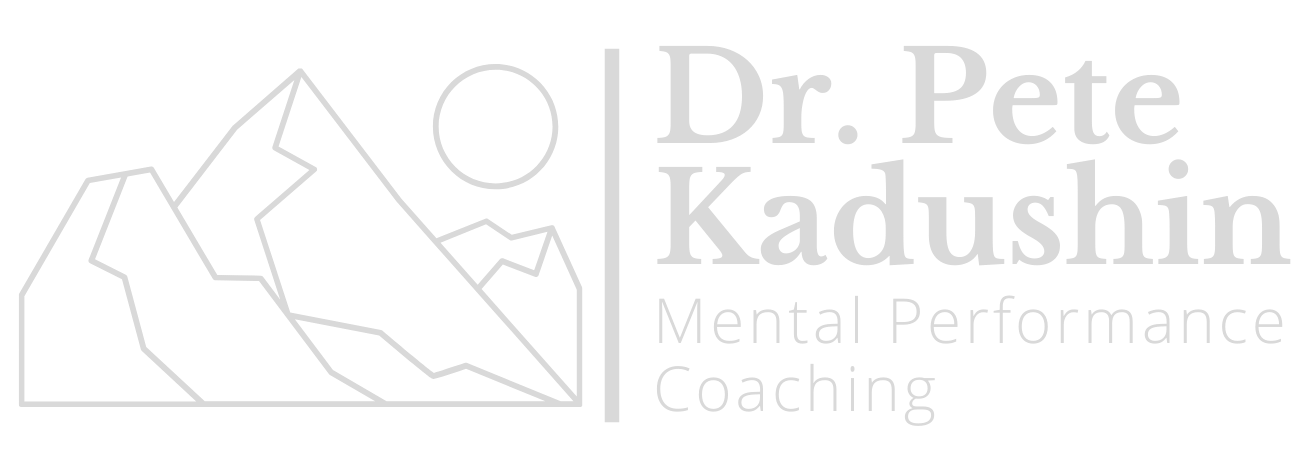Ep. 38: Embracing the Chaos to Unlock Performance with Dr. Adam Naylor
In the fast-evolving world of sport psychology, it’s easy to chase after the latest fads and quick-fix techniques. But the real game-changer isn’t found in a simple set of tools. It’s in the depths of our understanding of human psychology and performance. This episode, I had the pleasure of talking with one of the field’s most experienced voices, Dr. Adam Naylor, about what it really takes to build sustainable high-performance mindsets.
Dr. Adam Naylor has been a guiding light in sport psychology for over two decades, helping elite athletes smash through barriers both mental and physical. His extensive experience, combined with a tenure at Boston University, has not only shaped countless high performers but has also deeply influenced his approach to mental coaching. Adam’s philosophy is all about understanding the individual paths athletes navigate towards excellence, making him the perfect guest to dive into the complexities of mental skills training with us.
Dr. Naylor opened up about the limitations of focusing too narrowly on mental skills. Just like your technical and tactical skills are important, mental skills are critical to elite performance. However, Dr. Naylor points out that becoming overly attached to them can box athletes into rigid patterns of thinking, potentially stifling growth rather than fostering it. We discussed the need for a more nuanced, flexible approach that considers the whole person, not just the performer.
The Power of a Strong Working Alliance
A major highlight from our conversation was the importance of building a strong, trusting relationship between mental performance coach and athlete. Adam emphasized that the real magic happens when there is mutual respect and understanding—when athletes don’t just receive information but feel supported in integrating it into their personal and professional lives. This kind of alliance fosters autonomy and empowers athletes to use mental strategies effectively.
Adam also touched on the transformative power of accepting, expecting, and normalizing stress. By acknowledging that challenge and difficulty are a part of high-performance life, athletes can move from battling against it to moving forward with it. This shift can radically change an athlete’s approach to challenges, enhancing resilience and adaptability.
Daily Practices
So how do we make this happen? Our conversation left me with a few key takeaways. These actionable steps will make a difference in your practice:
1. Flex Your Mental Muscles: Keep your approach to mental skills adaptive. Help athletes identify what state they’re trying to cultivate, and help build a variety of ways to get there, instead of building an overly rigid approach. If all you have is a hammer… everything becomes a nail.
2. Build Deeper Bonds: Prioritize trust and open communication in your coaching relationships. It’s about more than just passing along techniques. An athlete doesn’t care how much you know until they know how much you care.
3. Normalize the Pressure: Help athletes see stress as a normal, manageable part of the performance landscape. Most athletes subtly hope that if they perfect their mental skills, then nerves, anxiety and stress will eventually go away! Instead, help them frame discomfort as the launchpad to even greater performance, and something that should be embraced.
4. Look at the Big Picture: Encourage athletes to cultivate practices that support their overall well-being, integrating mental skills into a broader lifestyle approach.
Chatting with Dr. Adam Naylor was a reminder that true high performance is about much more than just mashing the same button on your mental skills control panel under pressure. It’s about cultivating an environment where athletes can truly thrive, supported by understanding, flexibility, and a deep respect for their individual journeys. If you’re looking to deepen your impact as a coach or enhance your own performance, give this episode a listen—it’s packed with insights that could change the way you think about sport psychology.




